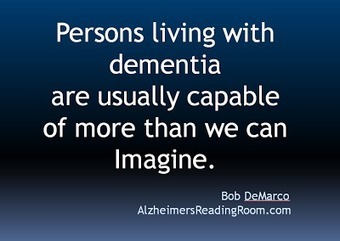Alzheimer’s disease is a physical illness that causes radical changes in the brain. As healthy brain tissues degenerate persons suffering from Alzheimer’s experience a steady decline in memory and the ability to use their brain to perform tasks.
What’s the Difference Between Alzheimer’s and Dementia?
In a nutshell, dementia is a symptom, and Alzheimer’s disease is the cause of the symptom. When someone is told they have dementia, it means that they have significant memory problems as well as other cognitive difficulties, and that these problems are severe enough to get in the way of daily living.
____________________________________________
What is Alzheimer’s Disease?
Alzheimer’s disease is a physical illness that causes radical changes in the brain. As healthy brain tissues degenerate persons suffering from Alzheimer’s experience a steady decline in memory and the ability to use their brain to perform tasks.
Go here to read more about Alzheimer’s disease.
____________________________________________
What is Dementia?
Dementia is the gradual deterioration of mental functioning, such as concentration, memory, and judgment, which affects a person’s ability to perform normal daily activities.
Go here to read more about Dementia.
____________________________________________
Dementia and the Eight Types of Dementia
Dementia is a an illness that usually occurs slowly over time, and usually includes a progressive state of deterioration. The earliest signs of dementia are usually memory problems, confusion, and changes in the way a person behaves and communicates.
Go here to read more about the Eight Types of Dementia.
____________________________________________
Is it really Alzheimer’s or something else?
Many people assume that if an older person becomes forgetful and can no longer deal with some of the basic activities of daily living, he or she must have Alzheimer’s disease. This is not always the case.
Go here to read more about Is it really Alzheimer’s or something else?
Original content Bob DeMarco, the Alzheimer’s Reading Room



